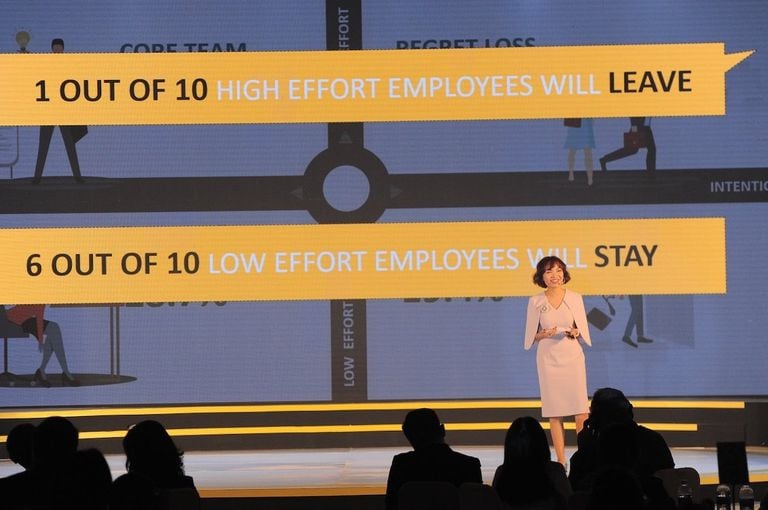According to the General Statistics Office – Ministry of Finance , the labor force and the number of employed people in the second quarter of 2025 increased compared to the previous quarter and the same period last year. Notably, the rate of trained workers with degrees and certificates reached 29.1%, an increase of 0.3 percentage points compared to the first quarter and an increase of 1.0 percentage points compared to the same period in 2024.
In the first 6 months of the year, the rate of trained workers with degrees and certificates reached 29.0%, showing that the quality of human resources is gradually improving.
In addition, a prominent trend is streamlining the apparatus and restructuring enterprises. Records at the end of 2024 show that 28% of enterprises have implemented streamlining on a large scale, about 10% of others have plans to implement in 2025, mainly in the fields of retail, fast-moving consumer goods, finance, tourism and manufacturing.
However, according to a survey by Anphabe - a labor market research unit, up to 46% of enterprises in Vietnam have difficulty recruiting suitable personnel. The gap between enterprise requirements and employee capacity lies not only in professional skills but also in the lack of innovative thinking, quick adaptability and cross-industry cooperation.
“The explosion of AI and digital technology is reshaping the labor market. Positions such as data analysts, data engineers, media managers, full stack engineers, etc. are constantly emerging, posing new requirements for skills and knowledge,” said Ms. Thanh Nguyen, CEO of Anphabe.
Meanwhile, the speed of skill upgrading in Vietnam remains slow. LinkedIn Learning 2025 report shows that 66% of employees at enterprises in Southeast Asia, including Vietnam, currently do not have the essential skills to contribute effectively to the organization.

Ms. Thanh Nguyen - CEO of Anphabe commented on the labor market.
In Ho Chi Minh City, many technology startups are forced to cut staff, prioritizing recruiting multi-tasking positions that adapt well to change. Some large enterprises in the real estate and logistics sectors are also restructuring to reduce costs and improve operational efficiency.
Faced with that reality, experts say that businesses need to proactively change their approach to internal training, build a clear career development roadmap for employees, and be flexible in welfare policies to retain talent.
For workers, lifelong learning and constantly updating their digital skills are key to staying relevant. In addition to technical skills, soft skills such as communication, critical thinking, problem solving and the ability to collaborate across disciplines are increasingly essential.
Duc Phuong
Source: https://doanhnghiepvn.vn/doanh-nhan/doanh-nghiep-va-nguoi-lao-dong-can-chu-dong-thich-ung-va-nang-cao-nang-luc/20250729053838752
























































![[Maritime News] Container shipping faces overcapacity that will last until 2028](https://vphoto.vietnam.vn/thumb/402x226/vietnam/resource/IMAGE/2025/7/30/6d35cbc6b0f643fd97f8aa2e9bc87aea)













































Comment (0)